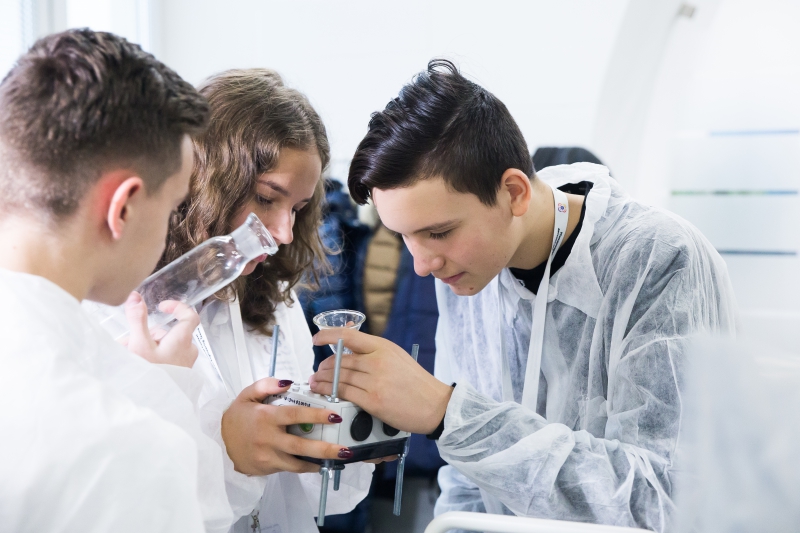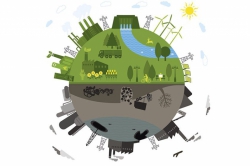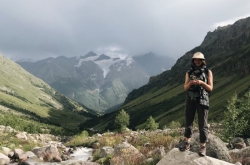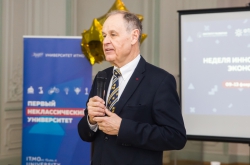The organizers
It was Valentin Milichko, a senior research associate at the Faculty of Physics and Engineering, and Alexandre Nominé, a participant of the ITMO Fellowship program representing Institut Jean Lamour in Nancy, France, who initiated the launch of the international Summer Bridge Scholarship program at the recently-created Laboratory of Hybrid Crystal Nanophotonics. As of now, the laboratory staff includes ITMO engineers and PhD researchers, who solve interdisciplinary tasks, with the lab’s topical work shared between the Russian and the French institutions reinforcing the collaboration.
“As Alexandre and I come from different scientific fields, the projects that are implemented at the laboratory are interdisciplinary by their nature: they can’t be conducted at one institution by one specialist only. What we’re aiming for is the cooperation between researchers bringing their own expertise and strengths into play. And in this we decided, why not involve Bachelor’s and Master’s students, too? Such an internship offers them to work on international projects with scientists from all over the world (France, Belgium, Luxembourg, Portugal, and Italy), who have a strong and actively expanding publication record. What’s more, the participants of the program will have the chance to write and publish a scientific paper as first authors if they achieve significant results, and all the tasks they’ll be set as part of the internship are fully feasible. The unofficial name of this internship is “First project – first publication”. For Bachelor’s and Master’s students, this is a great opportunity to understand how a publication-worthy scientific result is obtained. They’ll be introduced to all the stages of writing an article, which will really come in handy in their scientific careers later on. We’re absolutely certain that good work will lead to a published article,” explains Valentin Milichko.
According to the coordinators of the program, the authors of the most successful projects will be able to join a double-degree Russian-French PhD program. Even now, ITMO University is ready to offer them such an opportunity.
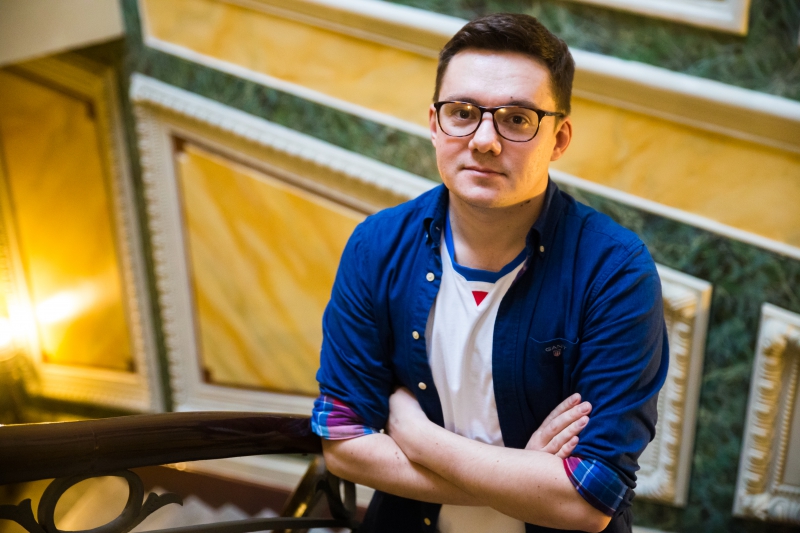
The projects
As of now, the plans for the internship include 15 scientific projects, with one per one intern, but according to the coordinators, this number may increase. All projects are interdisciplinary, spanning both fundamental and applied research (for example, the track “Nanomaterials for biophotonics”).
The projects are divided into four tracks: biophotonics (using nanomaterials for bio applications such as sensing); creating of new kinds and types of nanoparticles that do not exist in nature (this track encompasses fundamental research related to laser technologies); researching nonlinear optical processes in new complex materials for the tasks of bio-visualization, nanolasers and organic lasers; creating nanomaterials for preventing the impact of reactive oxygen intermediates, which cause damage to foodstuffs, and using these materials for the better keeping of food through including them in the composition of packaging surfaces.
All projects are implemented in collaboration with different research centers and universities from several countries, including France (Institut Jean Lamour), Belgium (University of Namur), Russia (Pavlov First St. Petersburg State Medical University) and others. For one, the project on the creation of nanomaterials to be used in food packaging is conducted with partners from several Portuguese universities, with the current focus being the synthesis of nanoparticles. The interns will have to, in the period of two to three months, solve the task that is part of a global project, which means that they’ll be constantly keeping in touch with their international colleagues.
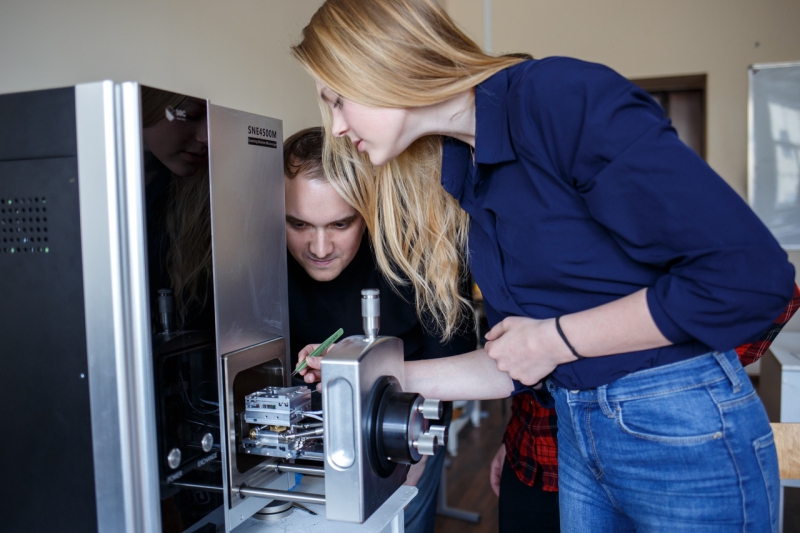
“All participants will be given tasks that are not easy but still feasible. The students will have to use their imagination and work to the max, but we guarantee that come the end of their project work, they’ll get an enormous sense of euphoria brought in by the realization of their personal contribution in the global goal. This program has a strong learning aspect: the participants travel the full scientific path from setting the task to obtaining concrete results. Sometimes we get approached by students who pursue scientific work but don’t fully understand why, as the results of their work aren’t used anywhere. The lack of a specific result lowers their interest. That’s why the most important goal of this internship is to obtain results, enjoyment and inspiration, and after that, further immersion in science,” shared Valentin Milichko.
Who can participate
Fourth-year Bachelor’s students and first-year Master’s students regardless of their major can partake in the scholarship program. It’s important to note that it is not only ITMO University students who are invited to participate, but also students and graduates of other universities. The only thing that matters is your motivation.
To apply for participation, prepare a CV listing your educational background and working experience, as well as your awards (if any). In addition to that, you should also write a short motivation letter (one paragraph) describing your research interests. Based on these documents, the jury will select 15 applicants, who will be offered particular projects to work on (which project you will be given will depend on your skills and competencies). Send your CV and motivation letter at physics@corp.ifmo.ru.
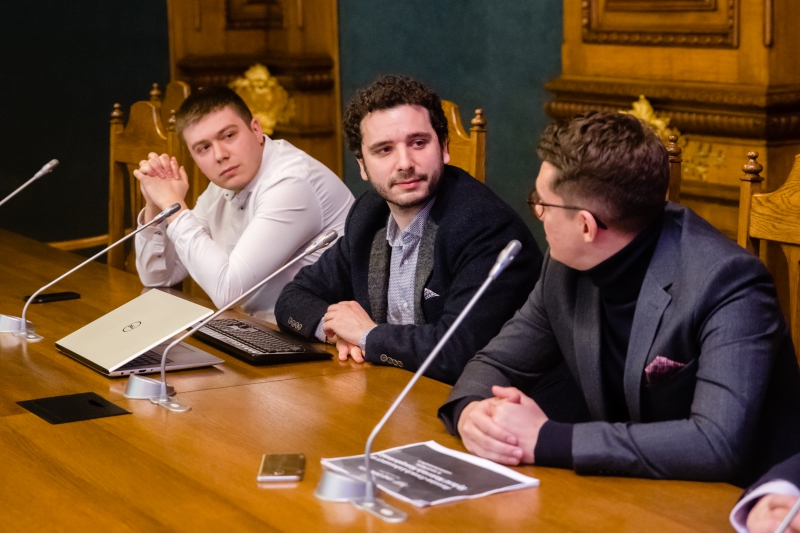
“There are no limitations regarding your major and place of study. We don’t encourage our students to stay but give them skills that may come in handy in their future career. Our main task is to change people’s perception of science. We want students to understand that science is not some closed-off world inaccessible to ordinary people. It’s a job like any other, but a much more interesting one. We believe that this change in the perception of science will lead to people understanding its value both in Russia and other countries. What we aim to do with this program is to build a society in which people would see the connection between science, economics, and welfare,” comments Alexandre Nominé.
The international jury board consists of six PhDs, including international ones. This is why you can write your motivation letter both in Russian and in English. However, don’t overestimate your abilities: if your level of English is not very high, you’re advised to write your motivation letter only in Russian, as there are no strict requirements concerning the participants’ level of English.
“Even though it’s not obligatory to have good command of English, this is an important assessment criterion. However, what is more important is the ability to critically evaluate your strengths and weaknesses. There are no qualification criteria such as the number of publications, working experience, and so on; we just want to know more about the people who want to participate in our program. If you have a thorough understanding of who you are and what you’re interested in and can share this knowledge with others, you’re welcome,” says Alexandre Nominé.
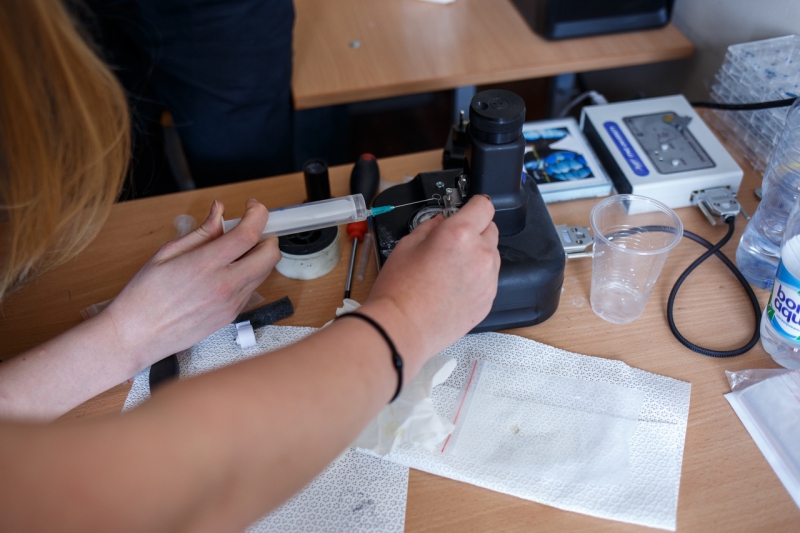
How much time is spent at the laboratory
There is no fixed schedule, it all depends on the project you’re working on and your personal preferences. You can visit the laboratory for an hour once a week or spend all your free time there. It’s the result the organizers are interested in. However, according to the program’s coordinators, it’s essential to strike a balance between the work at the laboratory, communication with experts and individual work.
Internship is paid for all participants
After the projects are completed, all the participants will receive a money reward of 30,000 rubles. The money is paid to the participants after they present the results of their work at the conference workshop. The scholarship is paid to all participants regardless of the results of their project.
Internship dates and application deadline
The application is open from June 1 to June 15. Applications should be sent at physics@corp.ifmo.ru. The internship will last for two and a half months, from June 15 till the beginning of September.
